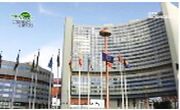Many Scholars` assessments of Dwight D. Eisenhower and his presidency were not friendly during 1960s-1970s. They usually portrayed him as an unintelligent, uneffectual, uninformed leader. Also he was regarded as the golf-playing war hero who was ignor...
http://chineseinput.net/에서 pinyin(병음)방식으로 중국어를 변환할 수 있습니다.
변환된 중국어를 복사하여 사용하시면 됩니다.
- 中文 을 입력하시려면 zhongwen을 입력하시고 space를누르시면됩니다.
- 北京 을 입력하시려면 beijing을 입력하시고 space를 누르시면 됩니다.

미국역사가들과 아이젠하워 수정주의(Eisenhower Revisionism) = The Eisenhower Revisionism and the Eisenhower Post-Revisionism
한글로보기https://www.riss.kr/link?id=A45030725
- 저자
- 발행기관
- 학술지명
- 권호사항
-
발행연도
2004
-
작성언어
-
-
주제어
드와이트 아이젠하워 ; 아이젠하워 수정주의 ; 아이젠하워 탈수정주의 ; 평화 ; 군비축소 ; 존포스터덜레스 ; 방위비지출 ; 국가안전보장 ; 냉전 ; Dwight D. Eisenhower ; Eisenhower Revisionism ; Eisenhower Post-Revisionism ; peace ; disarmament ; John Foster Dulles ; defense spending ; national security ; Cold War
-
KDC
900
-
등재정보
KCI등재
-
자료형태
학술저널
- 발행기관 URL
-
수록면
331-368(38쪽)
-
KCI 피인용횟수
3
- 제공처
- 소장기관
-
0
상세조회 -
0
다운로드
부가정보
다국어 초록 (Multilingual Abstract)
Many Scholars` assessments of Dwight D. Eisenhower and his presidency were not friendly during 1960s-1970s. They usually portrayed him as an unintelligent, uneffectual, uninformed leader. Also he was regarded as the golf-playing war hero who was ignorant of politics and major issues, or the irresponsible chief-executive who delegated much of his authority to his subordinates like John Foster Dulles. However, these evaluations have been changed since 1970s because some historians and politicians have found that Eisenhower had been excessively underestimated. And these scholars have insisted that the existing image on Eisenhower should be revised. Thus, the trend which was called `Eisenhower Revisionism` has arisen among many scholars. And it became a dominant opinion, as many historians including Fred Greenstein, Robert Divine, Stephen Ambrose joined this new trend during 1980s. Generally speaking, the basic contents of the `Eisenhower Revisionism` can be summarized to three points. First, Eisenhower was not an inept, unintelligent, passive but skilled, intelligent, active politician. Second, Eisenhower`s foreign policy was relatively successful because peace had been maintained during Eisenhower presidency. Third, Eisenhower was a sort of lone ranger for peace and disarmament who made an effort to reduce the tensions between the U. S and Soviet Union. Also he was an Dove who tried to check the Hawks, even if it was not successful. However, many recent studies have not agreed with these contents of Eisenhower Revisionism, except the first one that Eisenhower was not a passive leader among the above-mentioned points. Especially, some recent case studies which have dealt with specific foreign policy subjects - such as the Missile gap, the Surprise Attack Conference, the Nuclear Test Ban Talks - have showed that Eisenhower attached far greater value to waging Cold War than to ending it, that he contributed not to peace and arms control but to unprecedented increases in defense spending and massive buildup of nuclear weapons. In sum, they have insisted that Eisenhower was not a pacifist as revisionists has suggested. As a result, another new trend, so-called `Eisenhower Post-Revisionism` is arising against the `Eisenhower Revisionism,` just like the latter has arisen against the unfriendly assessments of Eisenhower which had prevailed during 1950s-1970s.
동일학술지(권/호) 다른 논문
-
- 대구사학회
- 강종훈 ( Jong Hoon Kang )
- 2004
- KCI등재
-
- 대구사학회
- 전영진 ( Young Jin Jeon )
- 2004
- KCI등재
-
프랑스 코뮌의 복지비 지출 분석(1949-1965) -불로뉴-비앙쿠르시를 중심으로-
- 대구사학회
- 은은기 ( Eun Gi Eun )
- 2004
- KCI등재
-
1920년 투르전당대회 -공산주의 인터내셔널과 공화국의 대결-
- 대구사학회
- 이학수 ( Hak Su Lee )
- 2004
- KCI등재
분석정보
인용정보 인용지수 설명보기
학술지 이력
| 연월일 | 이력구분 | 이력상세 | 등재구분 |
|---|---|---|---|
| 2026 | 평가예정 | 재인증평가 신청대상 (재인증) | |
| 2020-01-01 | 평가 | 등재학술지 유지 (재인증) |  |
| 2017-01-01 | 평가 | 등재학술지 유지 (계속평가) |  |
| 2013-01-01 | 평가 | 등재학술지 유지 (등재유지) |  |
| 2010-01-01 | 평가 | 등재학술지 유지 (등재유지) |  |
| 2008-01-01 | 평가 | 등재학술지 유지 (등재유지) |  |
| 2005-01-01 | 평가 | 등재학술지 선정 (등재후보2차) |  |
| 2004-01-01 | 평가 | 등재후보 1차 PASS (등재후보1차) |  |
| 2002-01-01 | 평가 | 등재후보학술지 선정 (신규평가) |  |
학술지 인용정보
| 기준연도 | WOS-KCI 통합IF(2년) | KCIF(2년) | KCIF(3년) |
|---|---|---|---|
| 2016 | 0.68 | 0.68 | 0.65 |
| KCIF(4년) | KCIF(5년) | 중심성지수(3년) | 즉시성지수 |
| 0.55 | 0.54 | 1.276 | 0.17 |




 KCI
KCI KISS
KISS






